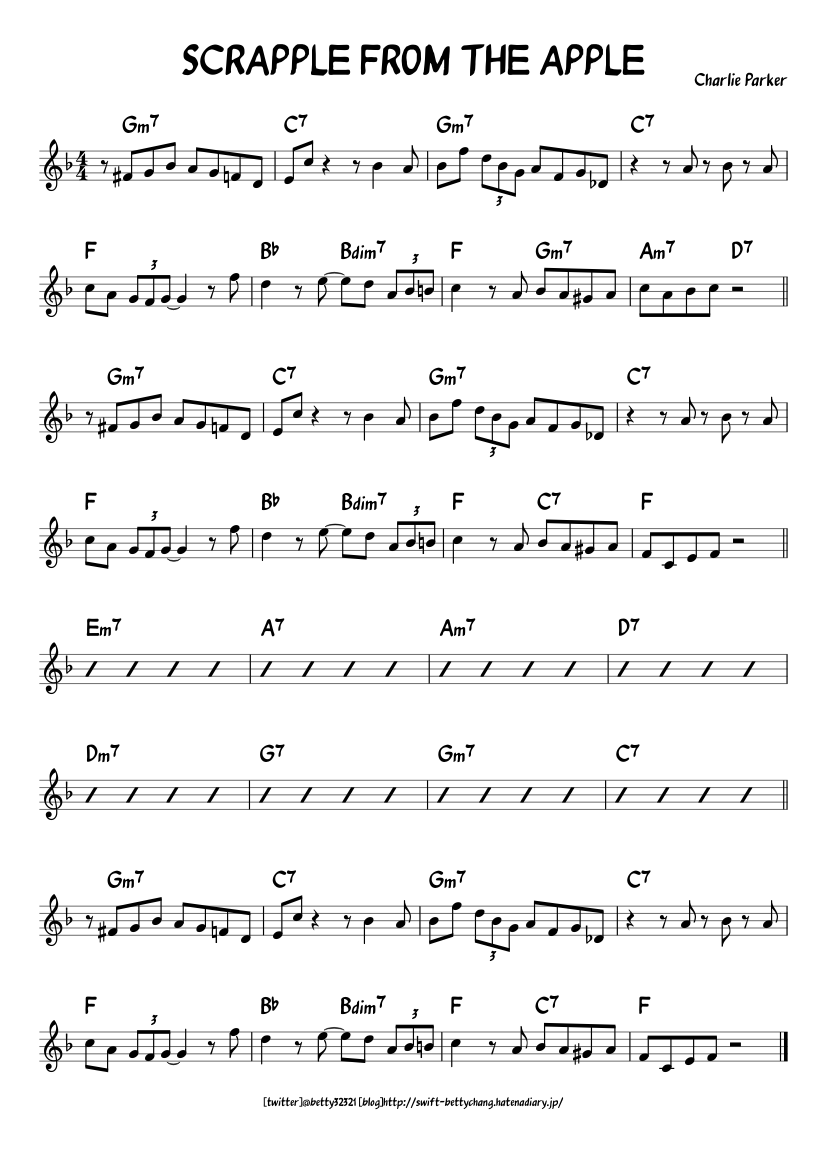Comping over Tunes
Comping stands for accompanying, and accompaniment entails you laying out the harmonic information while someone else uses that.
Improvisation Again
A common misconception is that accompaniment is boring, and that it's something you do while you wait for your solo. Let's change our outlook on that.
The first way in which accompaniment is improvisation is in the fact that we are constructing our chords, which means we don't use the same chords every time we see the same symbol, instead we make choices based on our current state.
The second way is that we can actually modify the chords as long as we don't stray to far from the intended changes. Another way is that we can control the rhythm and react to events.
Whereas improvisation might entail single note lines, since we have to lay out the harmonic foundation, when we play we should play at least 2 notes at once, let's look at scrapple again.

Sample
The anchor note is 5* (the key) and then our first chord is 2min7, defining 2 5 9 0, so playing the notes 2 9 11 would be fine on the first chord, notice that I don't even care too much about using the right ais, but as long as they're close enough.
On the second chord I could just modify that to 2 7 11, which is also close enough, then on the 2min7 we could play 5 9 0 which will work too. When we hit the F chord I'd play 4 9 0 7.
As you can see I personally take a more relaxed approach to comping where my chords are usually not exactly what's written but something that is close to it, in this way it will create more interest than just the stock chords and gives me more freedom.